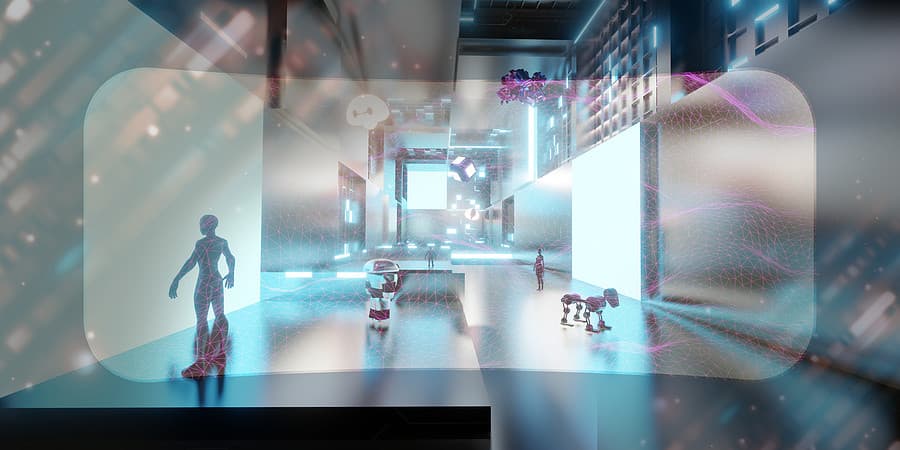The global technological landscape is currently embracing the next evolution, which is as big as the invention of the internet or the invention of electricity: Neal Stephenson’s Metaverse, has suddenly come to the limelight, almost three decades since his 1992 novel. Indeed, Mark Zuckerberg announced to rebrand Facebook as Meta last October and shared his vision and focus on a new dimension that will blur the lines between the real and the virtual world.
Does metaverse mean anything for talent acquisition? Is it just a buzzword that will fade away? Is it the right time to take it seriously? Or is it the next big thing in talent acquisition?
What Is the Metaverse?
Simply put, the metaverse is a network of 3D virtual worlds that users can simultaneously be a part of in a way that feels close to reality.
Using high-speed internet and other modes of data communication, this Hollywoodish sci-fi concept already exists. Facebook is not the first company to aim to be the master of the metaverse. Microsoft, for example, quietly announced in March 2021 its plan to develop a mixed reality platform called Mesh.
The Impact of Metaverse on Talent Acquisition
In the near and far future, we’ll observe a change in the talent acquisition tech ecosystem and a new investment stream for startups to develop metaverse-based TA solutions. There will be unlimited business cases; however, a few radical upcoming changes are quite obvious.
Interviews, Assessments, and Career Fairs
MS Teams will be introducing Mesh for Teams by mid-2022 to enhance conventional 2D videos with 3D virtual rooms. This will enable people to experience a metaverse of corporate office buildings and branded virtual conference rooms during interviews. Initial versions will have avatar-based interviews, while next-stage technology is likely to include real faces in virtual settings. Meanwhile, Meta introduced Horizon Workrooms last August as a virtual collaboration platform using Oculus Quest 2 headsets.
The same concept will be expanded to experience whole career fairs, assessment centers, and hackathons in the metaverse, whereby candidates will enter the virtual world with real-time interaction. Samsung has reportedly conducted a metaversal career fair in September using the Gather Town platform, where candidates met with HR and the hiring managers using avatars. It is a humble yet promising beginning.
Career Sites and Job Descriptions
We’ve seen the evolution of job descriptions from paper-based documents to online job postings to video-based job descriptions. The Metaversal job description will provide a virtual sense to the candidates so that they can experience how a job is before applying. This can entail experiencing a walk through a factory where the candidate will be working. It could be a visualization of the physical and virtual stakeholders with whom a sales manager will be dealing.
Likewise, current 2D career sites will shift to a metaverse of career sites over the coming years, where candidates would gesture to search for the right jobs and “experience” the job description before applying.
Onboarding
Unfortunately, many organizations struggle to make first impressions during remote onboarding. Zoom meetings are unable to fill the gap of much-needed human interactions in the first few days of work.
The metaverse will provide an immersive experience for new joiners to enter the virtual world of their new employer by visualizing the organizational structure and office building, interacting and meeting with colleagues, and participating in mandatory trainings. Indeed, Hyundai Mobis has already introduced such a plan.
All told, as the metaverse creates a lot of opportunities, as well as challenges, in multiple disciplines, quite a few questions will need to be answered. For example, what will be the legal boundaries of collecting and using candidate data from the metaverse? What about GDPR compliance?
The centralized metaverses models from the likes of Meta and Mesh will strongly be challenged by the decentralized models of blockchain-based metaverses, which means that the future of applicant tracking systems is unclear. Will they still be databases as they are today, or will they become a collection of APIs only?
Right now, future-oriented TA functions must heed the metaverse’s knock on the door — and then equip themselves to welcome the world of gestures.
